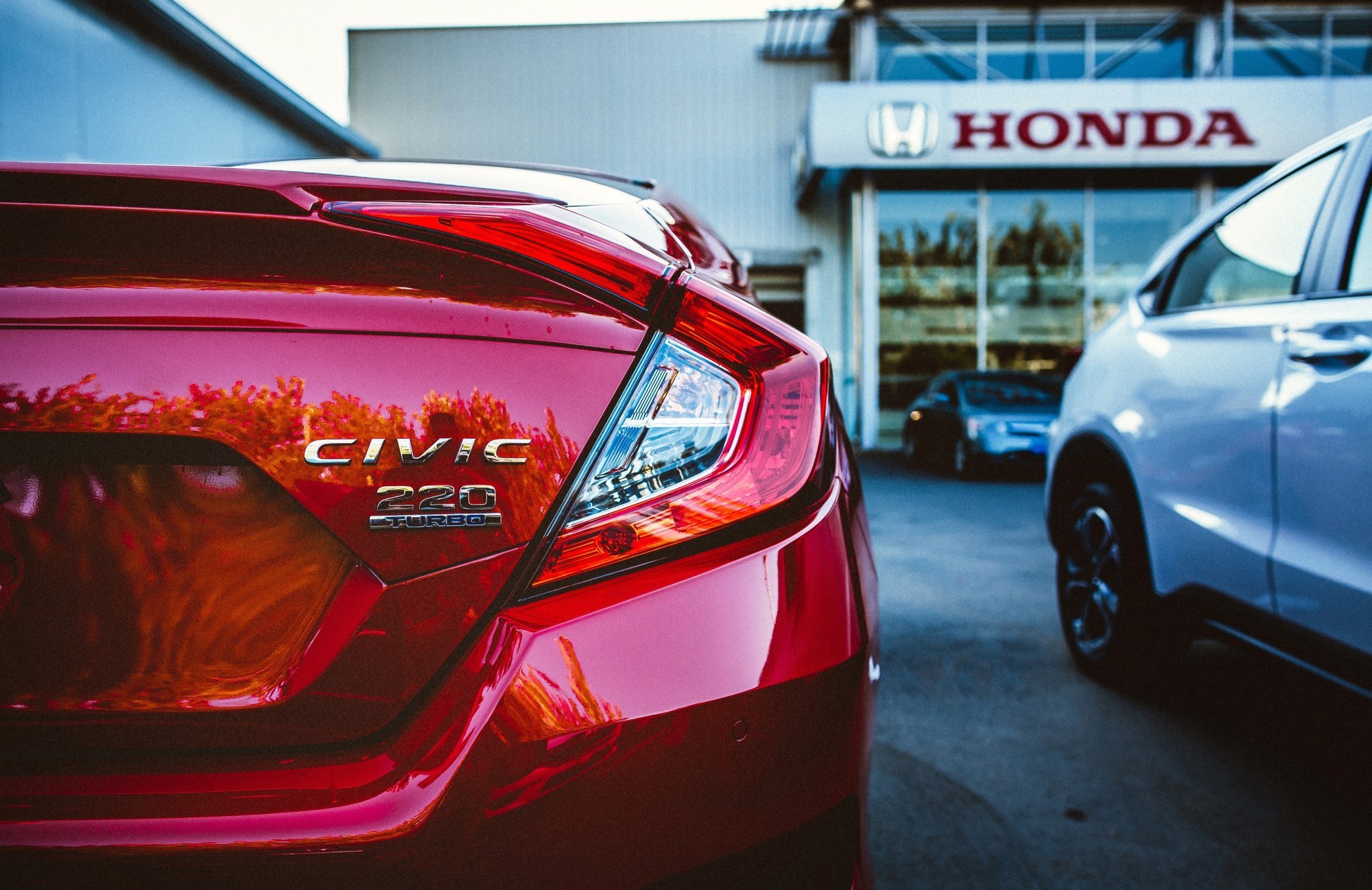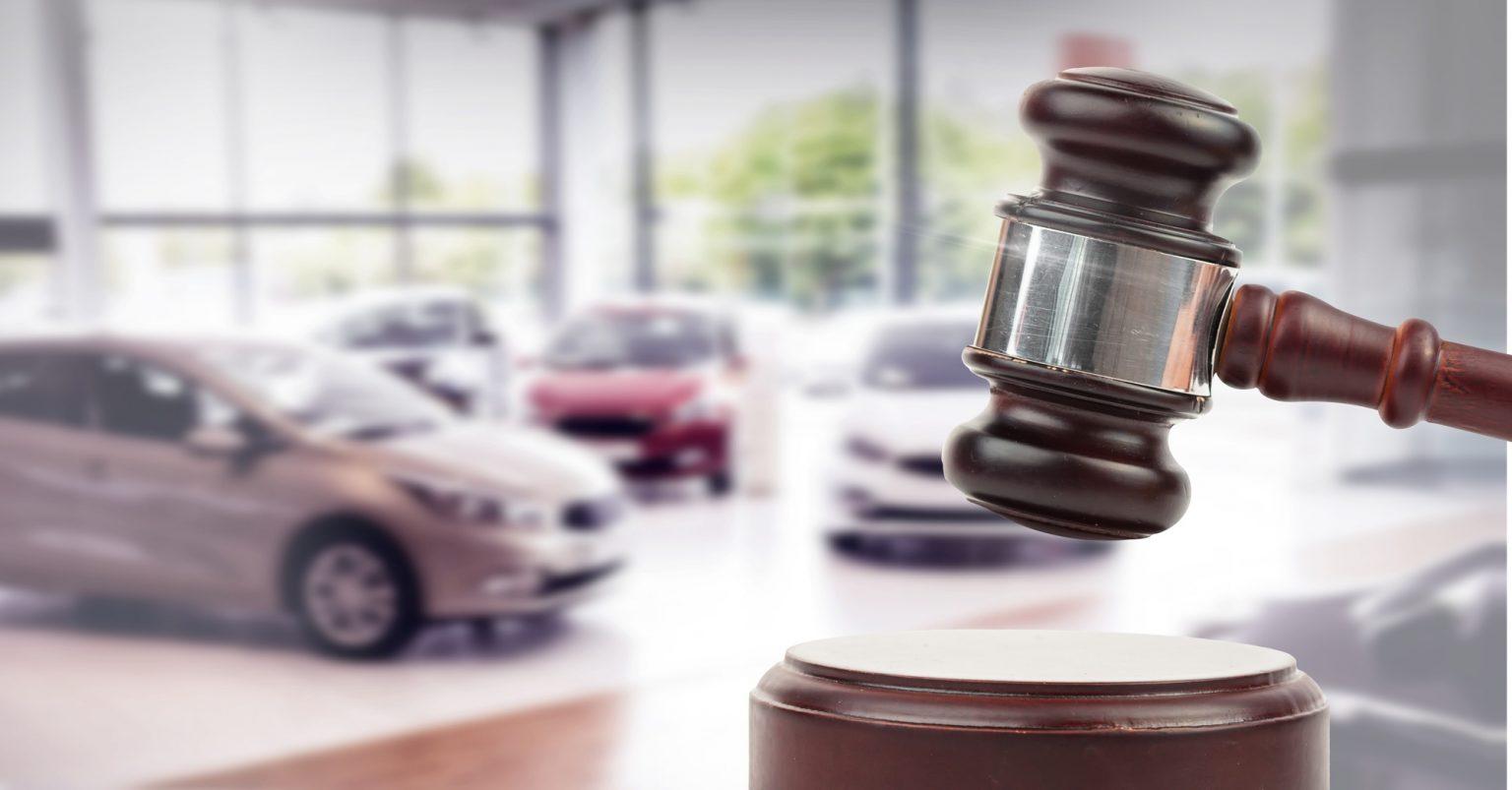Buying a used car can save you thousands compared to purchasing a new one. But what many buyers don’t realize is that searching outside your home state can open the door to even better deals, better condition vehicles, and models that may not be available locally. With online marketplaces, nationwide listings, and professional car shipping services becoming more accessible, buying a used car out of state has never been easier.
Whether you're browsing the best online car auctions sites or checking out national inventory on websites to buy used cars, expanding your search radius gives you far more flexibility and negotiating power. But interstate buying also comes with its own rules, costs, risks, and legal requirements.
This guide explains everything you need to know, from benefits and risks to detailed step-by-step instructions, so you can confidently ship a car to another state and avoid costly mistakes.
The used car market is constantly changing. Prices vary by region, as do availability and vehicle condition. Many buyers find that their perfect car simply doesn’t exist within their local search radius, or costs significantly more than it does in another state. With remote purchases becoming more common, car buyers today must understand the process of buying across state lines.
The challenge? Each state has different rules for taxes, registration, paperwork, and inspections. Combined with transportation logistics and verification steps, buying out of state requires more planning than a local purchase. This guide walks you through the entire process, helping you stay informed and avoid pitfalls.
Benefits of Buying a Used Car Out of State
Better Prices in Other Markets
Vehicle prices can differ dramatically between states. High-inventory areas and regions with lower demand often offer better pricing. For example, trucks may cost less in rural states, while hybrids may be cheaper in environmentally conscious regions with higher turnover.
More Inventory and Choice
Expanding your search beyond your state gives you access to thousands more vehicles. This increases your chances of finding your specific trim level, color, features package, or model year. Many buyers also compare buying car online vs dealership to determine which option gives them better pricing and flexibility when searching nationwide.
Better Condition Vehicles Depending on Climate
Climate has a major impact on vehicle longevity. Cars from warm, dry regions tend to have less rust, while those from milder climates avoid harsh UV damage. Selecting cars from favorable climates can significantly reduce long-term maintenance.
Access to Manufacturer Programs and Specialized Deals
Sometimes shoppers prefer to buy a car directly from the manufacturer through a certified pre-owned program, which may offer stronger warranties even across state lines. You also get access to nationwide auctions where knowing how to buy auction cars can help you win deals unavailable elsewhere.
Challenges and Risks to Consider
Complex Paperwork
Each state has its own rules about titles, emissions, registration, and taxes. Missing or incorrect paperwork can delay registration for weeks.
Transportation Costs
While the sticker price may be lower out of state, shipping and taxes can increase the final cost. You must consider the total cost, not just the price tag.
Inability to Inspect in Person
Remote buying means relying on photos, videos, or third-party inspections. This increases the need for careful verification.
Scams and Misrepresentation
Sellers may hide mechanical issues, accidents, or title problems. This makes documentation and inspections even more important.
Regulatory Differences
Your home state may require emissions or safety standards that the out-of-state vehicle cannot pass without repairs.
Legal Requirements for Interstate Used Car Purchases
Properly Signed Title
The title must be signed correctly by the seller, with no errors or missing fields. Mistakes may force you to contact the seller again.
Bill of Sale
Though not required in all states, a bill of sale protects both buyer and seller and is required for registration in many places.
Temporary Tags or Transit Permits
You may need temporary tags to legally drive the vehicle home or to a transport pickup location.
Emissions and Safety Standards
Your home state may require the car to pass emissions testing or a safety inspection before it can be registered.
VIN Verification
Some states require a physical VIN inspection during registration to confirm the vehicle’s identity.
State Taxes
In most cases, you pay tax when registering the vehicle in your own state, though the rules vary for dealership purchases.
Step-By-Step Guide to Buying a Used Car Out of State
Buying a used car out of state requires careful planning, especially if you're purchasing the car without seeing it in person. Here is a deeply detailed, step-by-step process professional buyers use.
Step 1: Research Vehicles Nationwide
Start your journey by exploring nationwide listings. Compare vehicles across multiple states to understand pricing variations and availability. Cars in certain regions may have lower prices simply due to high supply or lower demand.
Also, pay attention to climate impact. For example, cars from dry southwestern states may have minimal rust, while vehicles from snowy regions may have corrosion on the undercarriage. Understanding these patterns helps you make a smarter purchase.Shoppers interested in auction platforms often research how to buy auction cars so they can access lower-than-retail pricing across multiple states.
Step 2: Verify the Seller’s Legitimacy
Before investing any time or money, confirm the seller is trustworthy. For dealerships, check licensing information, online reviews, and Better Business Bureau ratings. For private sellers, ask for a driver’s license photo and a picture of the title to confirm ownership.
Sellers should be transparent about the vehicle’s condition and willing to answer questions. If the seller seems evasive or inconsistent, this is a warning sign.
Step 3: Request Complete Documentation and Clear Photos
Ask the seller to provide comprehensive documentation including the title, VIN, maintenance records, and emission or inspection reports. Request detailed photos of the car from all angles, exterior, interior, tires, trunk, dashboard, engine bay, and undercarriage.
These visual details help you assess wear patterns and spot inconsistencies. If a seller refuses to provide photos or documents, it's best to move on.
Step 4: Get a Vehicle History Report
A vehicle history report is essential in identifying title problems, accident history, odometer rollbacks, flood damage, or past ownership records. The report verifies important details the seller provides and helps you uncover hidden issues.
Cross-check the VIN and mileage listed on the report with the information provided by the seller. Any discrepancies should be taken seriously.
Step 5: Arrange a Professional Pre-Purchase Inspection (PPI)
A PPI provides a comprehensive view of the vehicle’s mechanical and structural condition. A certified mechanic will meet the seller, inspect the vehicle, test-drive it, and document its condition through photos and videos.
They examine the engine, transmission, brakes, suspension, electrical systems, and check for frame damage or rust. This step helps you avoid cars with hidden defects that could cost thousands to repair later.
Step 6: Negotiate Based on Facts, Not Assumptions
Use inspection findings and market research to negotiate a fair price. Highlight the cost of necessary repairs, upcoming maintenance, or issues uncovered in the PPI. Sellers are more receptive when you present factual information rather than offering an arbitrary low price. Remember to factor in transportation costs when determining your maximum offer.
Step 7: Complete the Paperwork Carefully and Thoroughly
The paperwork must be filled out flawlessly to avoid DMV delays. Make sure the seller signs the title correctly with accurate VIN, mileage, and date. The bill of sale should list the buyer and seller information, sale price, and vehicle details.
If the car has a lien, ensure there is a lien release letter. Even minor mistakes, such as misspellings or crossed-out text, can cause your home state DMV to reject the paperwork.
Step 8: Choose the Best Transportation Method
You can drive the vehicle home, hire a driver, or use professional transport. Driving the car may seem cost-effective, but it adds mileage, increases wear and tear, and can be risky if you're unfamiliar with the car's condition. Hiring a friend or driver may complicate insurance coverage.
Professional auto transport is the safest option, especially for long distances or unfamiliar vehicles. Transport carriers offer open trailers, which are economical, or enclosed trailers, which provide greater protection.
Step 9: Register the Car in Your Home State
Once the vehicle arrives, take the completed paperwork to your DMV. Most states require a VIN inspection and, in some cases, emissions or safety tests. You’ll pay sales tax, registration fees, and receive temporary tags or permanent plates depending on state procedures. Keep copies of all receipts and documents for future reference, especially when transferring titles or selling the vehicle later.
Costs Involved in Buying a Car from Another State
Understanding all associated costs helps you determine whether the purchase is still a good deal after adding transportation and registration expenses.
Purchase Price Differences
Depending on regional supply, demand, and economic factors, the same vehicle may cost significantly more or less in different states. A car priced $2,000 less in another state might still save you money after shipping and taxes.
Sales Tax and DMV Fees
The majority of states require buyers to pay sales tax when registering the vehicle locally. DMV fees may include title transfer, license plates, emissions testing, and VIN verification. Your total DMV costs vary depending on your state’s fee structure.
Transportation and Shipping Costs
Auto transport costs are influenced by distance, delivery route, fuel prices, time of year, and whether you choose an open or enclosed trailer. Remote areas may also increase pickup and delivery fees. Enclosed transport offers the highest level of protection for luxury vehicles or classic cars.
Inspection and Diagnostic Fees
A pre-purchase inspection typically costs between $150 and $300 depending on the depth of the evaluation. If specialized diagnostics are required, such as scanning for electrical problems or checking structural alignment, expect additional costs.
Repair and Maintenance After Purchase
Even well-maintained used cars require some maintenance after purchase. Budget for routine services such as oil changes, tire replacements, brake pads, filters, or alignment. Cars with high mileage or older components may require more extensive repairs.
Emissions, Safety, and VIN Inspection Fees
Your home state may require emissions or smog testing before the vehicle can be registered. Some states also require safety inspections to verify the condition of critical components like brakes, lights, and steering. VIN inspections confirm the vehicle’s identity and help prevent fraud.
Tips for a Smooth Interstate Car Purchase
Careful planning ensures a seamless experience from choosing a vehicle to registering it in your home state.
Verify the VIN in All Locations
The VIN should match on the dash, door jamb, title, and bill of sale. If any VIN is altered or inconsistent, avoid the vehicle. VIN discrepancies often indicate stolen vehicles or title fraud.
Never Skip the Pre-Purchase Inspection
Remote sellers may unintentionally or intentionally omit vehicle issues. Inspections detect frame damage, leaks, engine problems, rust, and hidden mechanical issues, giving you confidence in your purchase.
Use Secure Payment Methods
Avoid cash or unsecured digital payments. Instead, opt for certified checks, dealership payment portals, or escrow services to ensure a secure transaction with documented proof of payment.
Understand Your State’s Regulations Early
Research your state’s rules on emissions, inspections, taxes, and DMV requirements before finalizing your purchase. If your home state has strict regulations, the cost to meet them may offset your savings.
Keep Organized Records
Store digital and physical copies of the title, bill of sale, inspection reports, shipping agreements, and insurance paperwork. Detailed records help in registration, future resale, and dispute resolution.
Prepare for Transport and DMV Delays
Weather and scheduling may affect transport timelines. DMV offices can also have long processing times depending on the season. Planning ahead helps avoid unexpected setbacks.
Walk Away if Something Feels Wrong
Trust your instincts. Red flags such as uncooperative sellers, unclear documentation, or inconsistencies in the vehicle history report are signs to look elsewhere.
When Buying Out of State Makes Sense
Buying out of state is often the smartest choice, and here’s when it typically makes solid financial and practical sense:
Your Local Market Doesn’t Have the Vehicle You Want
Rare trims, luxury models, or older vehicles in specific configurations may be difficult to find locally. Expanding your search increases your chances of finding your ideal match.
The Price Difference Is Significant
Some vehicles are thousands of dollars cheaper in different states. If the savings exceed transport and registration costs, the deal is worth pursuing.
You Want a Vehicle from a Specific Climate
Cars from dry states often have minimal rust, while those from milder climates avoid extreme temperature-related wear. Climate considerations can improve long-term reliability.
You Are Shopping for High-Value or Collector Vehicles
Specialty cars often require nationwide searches to find well-maintained examples with complete documentation.
You Want a Well-Documented, One-Owner Vehicle
Buyers who prioritize documented maintenance may find better options in states with a higher population of one-owner vehicles.
When to Avoid Buying Out of State
Buying out of state is not always the right choice. Here’s when it’s best to reconsider:
The Paperwork Is Incomplete or Suspicious
If the seller has a lost title, unclear ownership, or refuses to provide identification, the risk of fraud or long-term complications is too high.
Transport and Fees Cancel Out the Savings
If the out-of-state price is only slightly lower, transportation, taxes, and inspections may erase any financial benefit.
The Vehicle Fails Inspection or Has Major Issues
Structural damage, heavy rust, engine problems, or electrical failures often indicate costly repairs. An out-of-state purchase with major issues rarely makes sense.
The Seller Seems Uncooperative or Rushed
Legitimate sellers provide documents, allow inspections, and communicate clearly. Avoid sellers who push for fast payment or provide inconsistent information.
Your State Has Strict Emissions or Safety Rules
If your home state has strict regulations, bringing in a non-compliant vehicle can be expensive, especially if it requires engine repair, catalytic converter replacement, or emissions system upgrades.
Conclusion
Buying a used car out of state can offer unbeatable deals, greater selection, and better condition vehicles, but only when done correctly. By following a structured approach, verifying every detail, arranging professional inspections, and using reliable transportation, you can enjoy a smooth and stress-free buying experience.
Whether you’re shopping through dealerships, auctions, or online platforms, understanding each step ensures you get the best value for your money. With proper planning, buying a car across state lines can be one of the smartest automotive decisions you make.
FAQs About Buying a Used Car Out of State
1. Is it legal to buy a used car from another state?
Yes. As long as the title is properly transferred and you complete registration and taxes in your home state, the process is entirely legal.
2. How do I safely transport a car I bought in another state?
Most buyers hire professional auto transporters for safety, insurance protection, and convenience.
3. Do I pay sales tax to the seller’s state or my own?
Most states collect sales tax when you register the vehicle at home, not when you buy it.
4. Should I get a pre-purchase inspection before buying?
Absolutely. A PPI is essential for detecting hidden issues and making an informed decision.
5. Can I buy a car from out-of-state auctions?
Yes, especially if you're familiar with the bidding process and understand auction terms.



